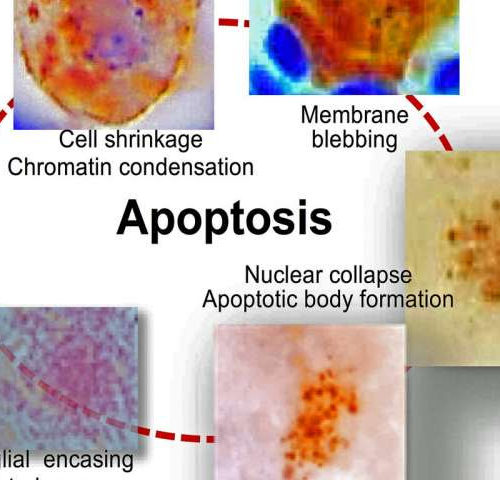by Cincinnati Children’s Hospital Medical Center Without even knowing it, most of us carry around latent Herpes Simplex Virus (HSV) in our nervous system—a simple result of being born and living together with others carrying the virus. This illustration shows the stepwise apoptotic (a form of cell death) path that a trigeminal sensory neuron undergoes...
Tag: <span>neurological disease</span>
Sleeping Habits Can Have Effect On Alzheimer’s Progression Later In Life
In a new study, researchers found that a person’s sleeping habits can predict the accumulation of Alzheimer’s pathology protein in the brain later in life. A team from the University of California, Berkeley linked decrease in slow oscillations and sleep spindle synchronization on electroencephalogram (EEG) to higher tau. Meanwhile, reduced slow-wave-activity amplitude was associated with...
A road map to stem cell development
Johns Hopkins Medicine researchers report they have created a method of mapping how the central nervous system develops by tracking the genes expressed in cells. The technique, demonstrated in mouse retinas for this study, follows the activity of the genes used by individual cells during development, allowing researchers to identify patterns in unprecedented detail. This precise...
New mouse model reminiscent of Leigh syndrome sheds light on mechanisms of neurodegeneration
Leuven researchers led by professor Bart De Strooper (VIB-KU Leuven) have identified a new role for PARL, a protein that has been linked to Parkinson’s disease. In this week’s edition of the Proceedings of the National Academy of Science, they report that mice lacking PARL display specific problems in the nervous system reminiscent of Leigh...
MS: How too much salt can cause inflammation
New research, published in the journal Nature Immunology, now shows how a high intake of salt may cause inflammation in multiple sclerosis. salt One recent study reveals how excessive salt consumption may trigger inflammation in people with MS. Multiple sclerosis (MS) is an autoimmune disorder in which the body’s immune system destroys the protective coating...
Brain-machine interfaces to treat neurological disease
Since the 19th century at least, humans have wondered what could be accomplished by linking our brains – smart and flexible but prone to disease and disarray – directly to technology in all its cold, hard precision. Writers of the time dreamed up intelligence enhanced by implanted clockwork and a starship controlled by a transplanted...
Natural experiment, dogged investigation, yield clue to devastating neurological disease
A normal 9-month-old rat has myelin (blue) throughout the brain but the age-matched mutant rat (below) appears to have none. (Scale bar is 1 mm; front of brain is at right.). After a 29-year quest, Ian Duncan, a professor of veterinary medicine at the University of Wisconsin–Madison, has finally pinpointed the cause of a...
- 1
- 2

